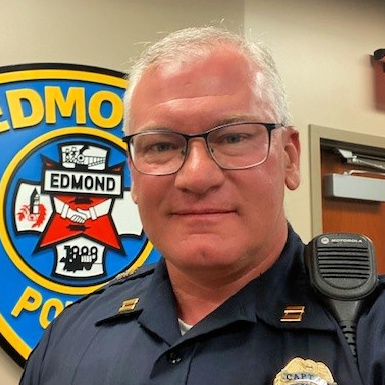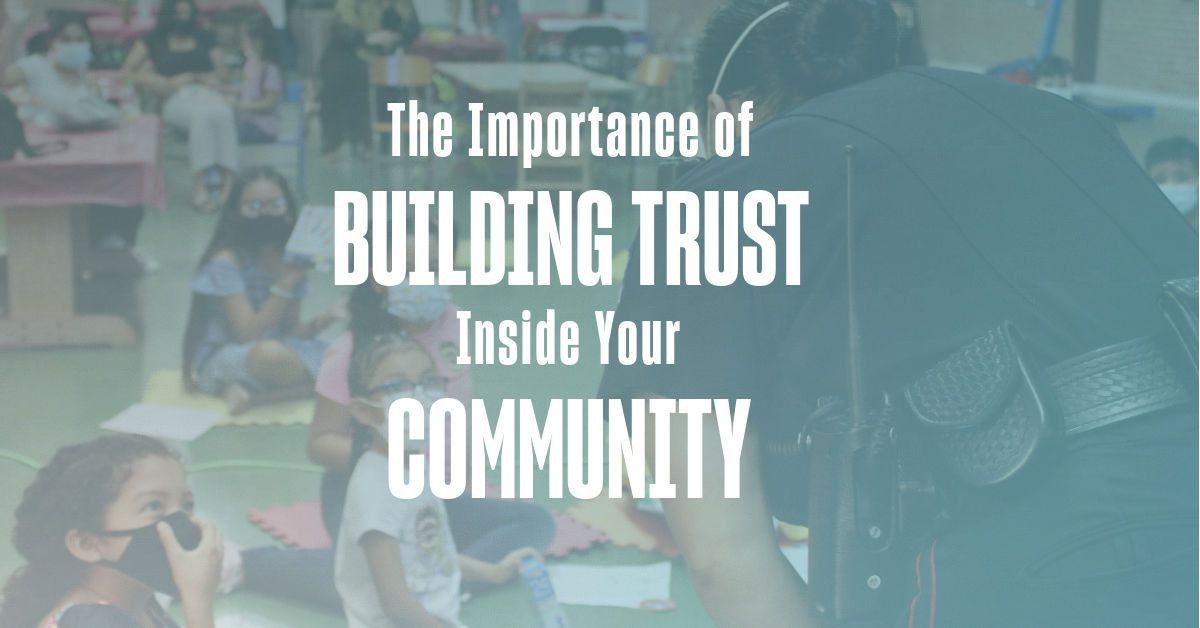by Captain Derick Pickard, Edmond Police Department, OK
This article was initially published in the September 2022 issue of the FBI-LEEDA Insighter and is republished here by permission of the author and FBI-LEEDA.
“Trust Is the Currency of Leadership”
The first time I heard this statement was in my Law Enforcement Executive Development Association (LEEDA) Command Leadership Institute. Popular leadership consultant and author Jon Gordon earned the credit for this apt metaphor, linking the ideas of trust and leadership.
Leadership Specialist Simon Sinek reminds readers in his book Leaders Eat Last: Why Some Teams Pull Together and Others Don’t that “Leadership is not about being in charge. Leadership is about taking care of those in your charge.”
[RELATED] What Style of Police Leadership Is Most Effective? >>
It is a matter of when, not if, your department does something that stresses the relationships you have worked so hard to invest in. When this occurs, you will have to draw on this account. If you go negative in your trust account, a rift may very well develop between the department and the people you serve and protect. The reaction is likely to be the catalyst that causes your citizens, to question and assess the legitimacy of your ability to police the community.
The “Taskforce on 21st Century Policing,” a product of an executive order from President Obama in 2014, leads us directly to its five pillars of law enforcement, starting with “Building Trust and Legitimacy.”
The 21st-century policing document states that law enforcement cannot build trust if it is seen as an occupying force coming in from the outside to impose control on the community.
Some communities may need cultural bridges. Others might need to see (LEOs) in times that don’t involve arrests or tragic situations. Still, others need to learn that officers have needs and issues too. We are not robots called to action when the community needs a response team.
[MUST READ] Why Effective Police Communication Skills Matter More Than Ever >>
Agencies feeling the effects of these kinds of insider versus outsider influences are challenged then to take a long hard look at the situation that is preventing their officers from making deposits into their constituents’ trust accounts.
Once you have a clear picture of your community’s needs, create a collaborative plan to create an environment that allows officers to become part of the community. Then, push those in your charge toward continuous improvement. Push it, encourage it, demand it. The goal at every turn is to foster relationships between the law enforcement agency and those it serves.
One of the most effective ways to start this process is through “COPS contacts.” For practicality, a COPS Contact is a short interaction between a police officer and a citizen that has nothing to do with enforcement. It is a voluntary, purposeful interaction between officers and the people they have sworn to protect.
[RELATED] The Path to Community Policing Through Leadership >>
While the value of relationship-building may not be realized immediately, the truth is that eventually the relationship between the agency and the public will be tested. It has been my experience that when we spend time fostering and building this relationship during the good times, it is very often strong enough to withstand the stress of hard times.
Simply implementing a COPS contacts program is not enough to build the trust an agency seeks to build between itself and its constituency. There are dozens of ideas and concepts of how law enforcement agencies can foster, repair, or build relationships with the communities they serve. The important thing to understand and accept is how important it is to create time and expectations for officers to make daily deposits in the relationship bank.
Belonging to a group is what being in a community is all about — whether it’s playing basketball with kids in the local park, helping the elderly carry their groceries across the crowded Walmart parking lot, talking to a roomful of Rotarians or passing out popsicles in a government-assisted housing community. Each smile, high five and handshake is an investment.
As Sinek taught us, it is taking care of those in our charge. Each contact builds legitimacy as a deposit in the relationship account. Each deposit builds trust, and the total is a trusting community that regards its police department as among the most respected in the city’s leadership.

Captain Derick Pickard is a 25 year veteran of the Edmond Police Department in central Oklahoma. Over the course of his career, he has been a Field Training Officer, SWAT operator, Sniper/Observer, Bike Officer, and Supervisor. He has spent the last 13 years as a supervisor including supervising the department’s School Resource Officer Program for 5 years. After being promoted to the rank of Captain in 2020, he has been assigned to the evening shift as the Shift Commander. He enjoys learning and sharing his leadership skills, and completed the LEEDA Trilogy in the spring of 2022.




![What Is IT Leadership? [+Top Traits & Skills Needed to Succeed]](https://onlinedegrees.sandiego.edu/wp-content/uploads/2024/05/ITL_WhatIsITL-1024x576.png)